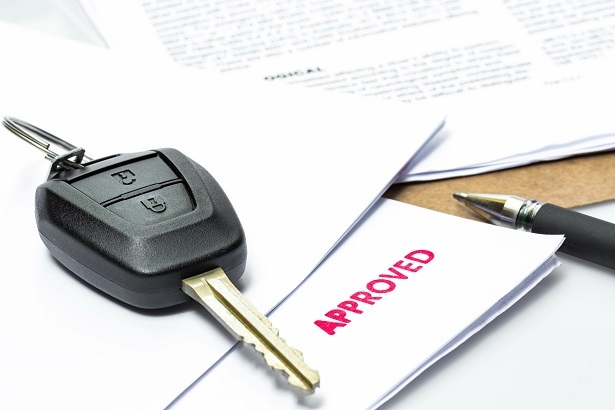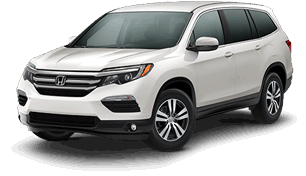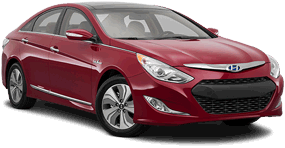If you decided your next car purchase will be a used vehicle, we applaud you for being a savvy consumer. Buying used offers several advantages over buying a brand new car including a much lower average asking price, less depreciation, and a wider selection of vehicles. In most aspects of life, greater reward comes with greater risk, and buying a used car is no exception. Although you'll likely find significant savings with a used car, you may also find higher interest rates on your car loan along with uncertainty about the vehicle's condition. To help you navigate your used car purchase and make the best choice for you, your family, and your finances, we've compiled the top 5 used car buying tips.
1. Budget Smart

Although buying a used vehicle can help you save on a car purchase, it's easy to overspend when you get caught up in the excitement of buying that new-to-you car. Sure, the average price of a used car is still a far cry from the $40K price tag for the average new vehicle, but used car prices are also starting to creep up. The average used car price hit a record of $24,467 in 2020, an increase of $1,700 from 2019. The average monthly payment for used vehicles was $413 last year, which is the first time it has topped $400.
To avoid buying a vehicle you can't afford, budgeting should be the first step in your car shopping process before you get your heart set on a specific make and model. There are many formulas out there that tell you how much car you can afford. Most financial experts recommend the 20% rule when budgeting for a car. This means no more than 20% of your take-home pay should go towards owning the vehicle. The 20% includes the monthly car payment along with gas, insurance, and maintenance costs. If you are taking out a loan for the car, you’ll want to plan for a down payment of at least 10% and also budget for the monthly payments.
2. Get Pre-Approved for a Car Loan

With the average used car price climbing well above $20,000, most shoppers will need to finance a used vehicle purchase. If you have decided to pay cash for your used car, feel free to skip to the next tip. If you plan to take out an auto loan, keep in mind that the auto loan interest is the second largest expense when buying a car. It's important to understand how a used car purchase will impact your interest rates.
Financing a used vehicle will produce higher interest rates than buying new, especially for car shoppers with less than perfect credit. The reason for the difference is because the condition of used cars is less predictable than new ones, and repairs are typically not covered by the manufacturer. If the vehicle becomes undrivable, the borrower is less likely to pay off the loan.
Just like you comparison shop for the best vehicle price, you need to shop around for auto financing to get the best deal. It's worth taking a few minutes to apply for pre-approval for a car loan via a bank, credit union, or online financing company. You can then select the lender with the lowest interest rates and the best terms. Even if you end up going with the dealership finance office for your used car loan, you can use the pre-approval rates you received to negotiate a lower rate.
3. Weigh All of Your Options

The beauty of buying a used car is that your options are nearly endless. Not only do you get more choices for the car itself, but also where you can buy from. You can go with an older used model or buy a certified pre-owned car that's just a couple of years old. You can purchase from a traditional dealership, used car lot, Carmax, or a private seller. On the flip side, there are pros and cons to all of these choices, which can make the process a bit overwhelming. A certified pre-owned vehicle offers more peace of mind, but comes with a much higher price tag, for example.
A good place to start is with an online search for used cars. You’ll be able to view used car listings in your area, filter by distance, miles, year, or price, and request more info on the car from the seller. You'll have access to all this information before ever stepping foot in a dealership or used car lot. The research you do now will pay off when it comes time to pull the trigger. Start by compiling a list of the vehicles you're interested in and take notes on their specs, features, and prices.
4. Play Detective

A large purchase should never be rushed, and a used car requires even more investigative work on your part. Be prepared to do some digging to learn as much as you can about the car's history. Know the red flags to look for when test driving the vehicle. For example, rust or dents, chips in the windshield, and worn tires are all warning signs. Even if the vehicle looks good to you, don't skip getting the vehicle history report and an inspection from a professional mechanic.
If you're buying from a private seller, you'll want to have a list of questions prepared. For example, you'll want to ask, "Are you the first owner?" "Do you have the vehicle service records?" "Do you have the title and is it clear?" "How did you land on the asking price?" and "Can I have the car inspected by a mechanic?" You'll want to evaluate the seller along with the car so you can decide if he is trustworthy and honest.
Buying from a dealership will give you more peace of mind, but you should still make sure you look through the vehicle history report and ask to get the car inspected. The last thing you want is to end up having to make expensive repairs because the car doesn't match its advertised condition or has been in a major accident.
5. Negotiate like a Pro

While new car prices are fairly straightforward, used car prices can vary drastically based on the car's model year, trim, condition, and where you buy from. This can make negotiating the price quite challenging. Luckily, you're armed with the information you gathered (outlined in tip #3) to ensure you pay a fair price.
If you're buying a used vehicle from a dealership, you'll want to steer clear of discussing your monthly payment. You should negotiate the car price, finance terms, and your trade-in separately. Allowing the salesperson to roll everything up into a monthly payment leaves a lot of room for him to raise the price.
Whether you're negotiating with a car salesperson or private seller, you should use the pricing notes you took in your research and stick to your predetermined price range. Make sure you don't reveal the price you're willing to pay right away. Always start with a lower number and expect a counter-offer from the seller. If the seller won't accept a fair offer, you should feel free to walk away. The best thing about the used car market is that there are plenty of other fish in the sea.


